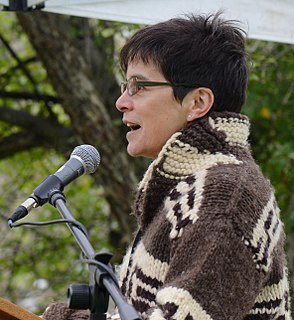A Quote by Natasha Trethewey
What's left is palimpsest—one memory bleeding into another, overwriting it.
Quote Topics
Related Quotes
Memory is strange. Scientifically, it is not a mechanical means of repeating something. I can think a thousand times about when I broke my leg at the age of ten, but it is never the same thing which comes to mind when I think about it. My memory of this event has never been, in reality, anything except the memory of my last memory of that event. This is why I use the image of a palimpsest - something written over something partially erased - that is what memory is for me. It's not a film you play back in exactly the same way. It's like theater, with characters who appear from time to time.
Nothing feeds forgetfulness better than war.... We all keep quiet and they try to convince us that what we've seen, what we've done, what we've learned about ourselves and about others, is an illusion, a passing nightmare. Wars have no memory, and nobody has the courage to understand them until there are no voices left to tell what happened, until the moment comes when we no longer recognize them and they return, with another face and another name, to devour what they left behind.
During my last year of college I wrote the same ten pages over and over again. Those ten pages became the first few pages of my first novel. I can still recite the opening paragraph from memory - only now I cringe when I do it because they are - surprise! - a classic example of overwriting, in addition to being a more than a little pretentious.
One strand of psychotherapy is certainly to help relieve suffering, which is a genuine medical concern. If someone is bleeding, you want to stop the bleeding. Another medical aspect is the treatment of chronic complaints that are disabling in some way. And many of our troubles are chronic. Life is chronic. So there is a reasonable, sensible, medical side to psychotherapy.
But... when I left you, Bella, I left you bleeding. Jacob was the one to stitch you back up again. That was bound to leave it's mark - on both of you. I'm not sure those kinds of stitches dissolve on their own. I can't blame either of you for something I made necessary. I may gain forgiveness, but that doesn't let me escape the consequences.






































